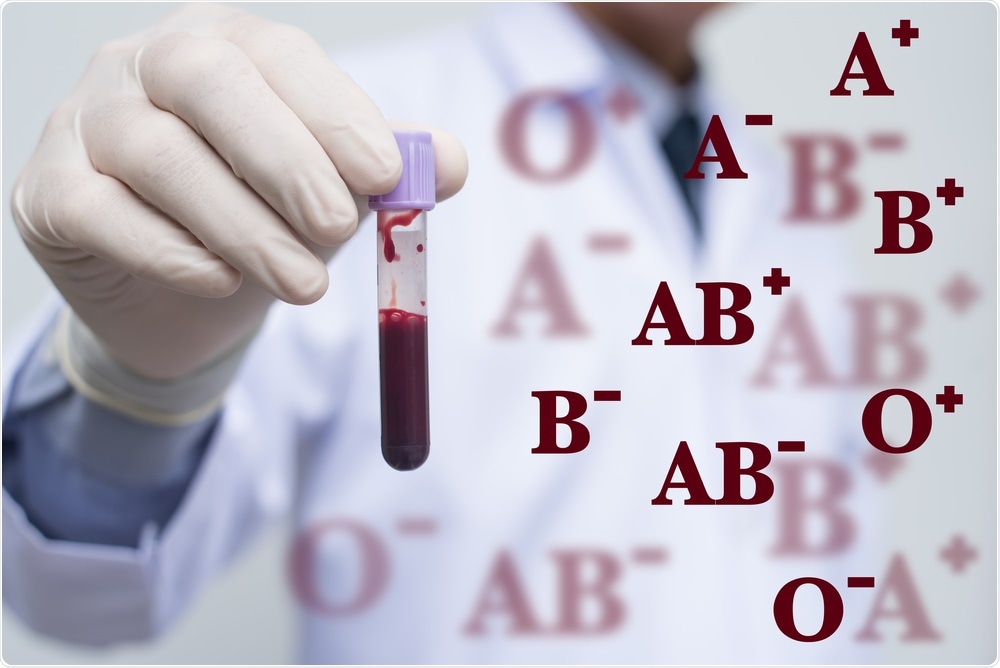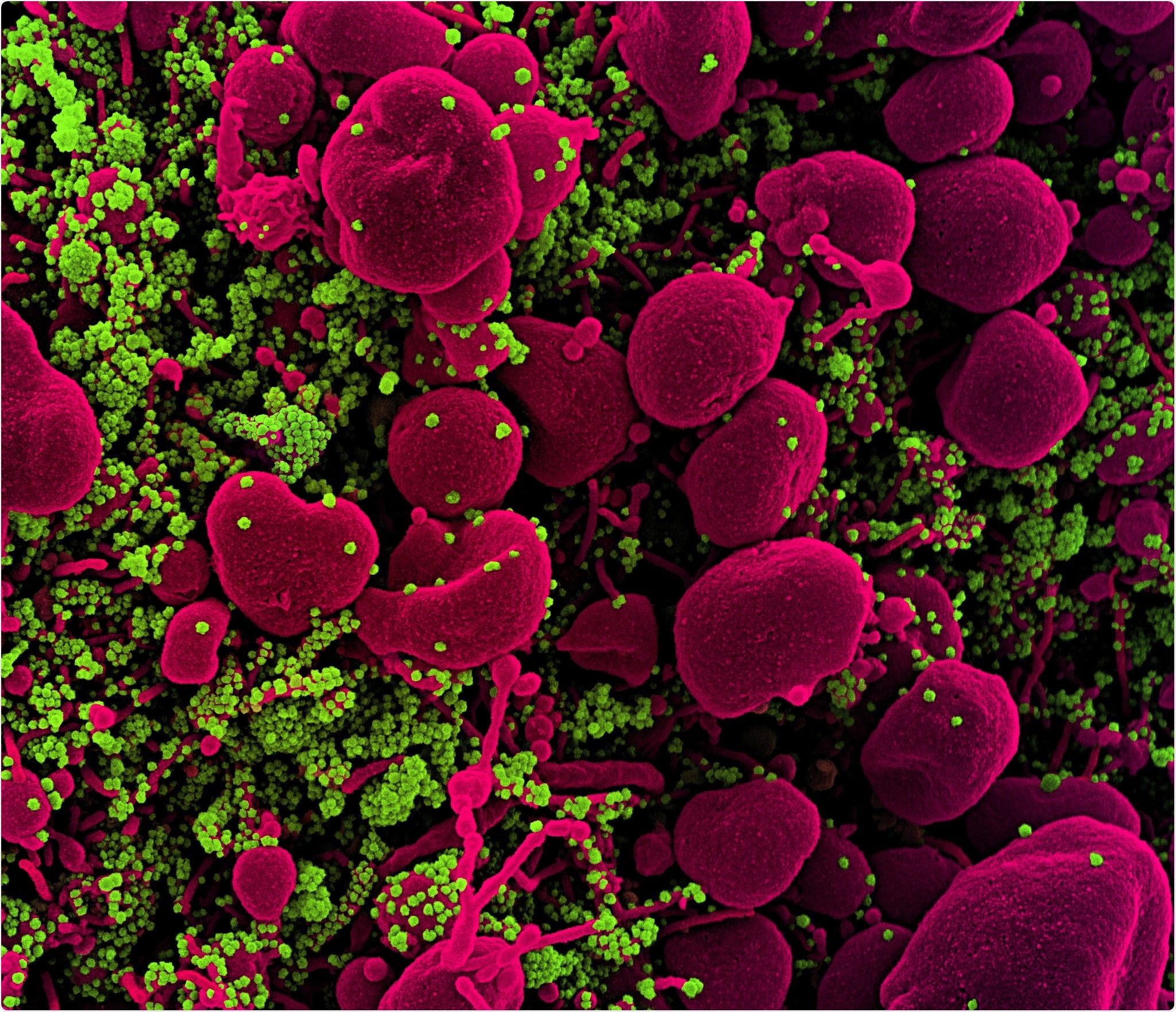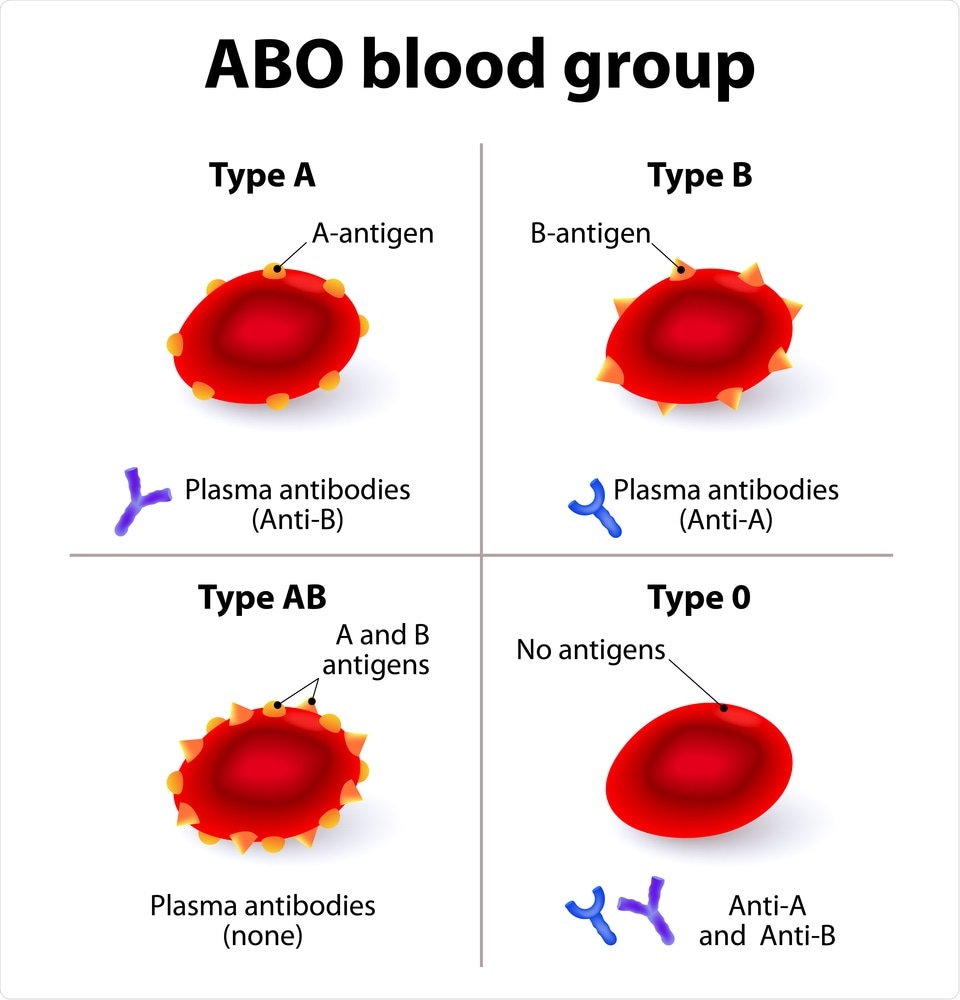Blood type may play a pivotal role in driving disease severity among coronavirus disease (COVID-19) patients. Genetic analysis of COVID-19 patients has shown that people with blood type O seemed to be protected against severe disease. In contrast, those with blood type A may experience complications tied to the viral infection.
A team of European scientists has found that two genetic variations may show who is more likely to get very sick and even die from the severe acute respiratory syndrome coronavirus 2 (SARS-CoV-2) infection. Further, they found a link to blood type, suggesting that some people are predisposed to COVID-19 severe disease.
The study findings, published in The New England Journal of Medicine, shed light on why some people have a higher risk of being infected with the coronavirus and developing worse symptoms.
In three completely separate studies, researchers from Columbia University, Iran's Mazandaran University of Medical Sciences, and various Chinese institutions all arrived at similar findings.

Image Credit: TippaPatt / Shutterstock
Respiratory failure in COVID-19 patients
The pathogenesis of severe COVID-19 and the associated respiratory failure is still unclear, but the higher mortality is consistently tied to older age and being male. Further, people with underlying health conditions are more likely to develop severe COVID-19, including hypertension, diabetes, being obese, and cardiovascular disease.
The relative role of clinical risk factors in determining the severity of COVID-19 has not been clarified. Now, the new study underscores other predisposing factors that may make some people vulnerable to the infection.

Novel Coronavirus SARS-CoV-2 Colorized scanning electron micrograph of an apoptotic cell (pink) heavily infected with SARS-COV-2 virus particles (green), isolated from a patient sample. Image captured at the NIAID Integrated Research Facility (IRF) in Fort Detrick, Maryland. Credit: NIAID
Genetic analysis
The team studied more than 1,900 severely ill coronavirus patients in Spain and Italy, two of the hardest-hit countries at the peak of the coronavirus pandemic. They compared the patients from seven hospitals to 2,300 people who were not sick. Overall, they analyzed more than 8 million single-nucleotide polymorphisms and conducted a meta-analysis of the two case-control panels.
The team has found that a cluster of variants in genes that are involved with immune responses was more common in people with severe COVID-19. The genes are also associated with a cell-surface protein known as angiotensin-converting enzyme 2 (ACE2), which the coronavirus uses to enter and infect cells in the body.
One of the gene clusters increased the risk of getting severe COVID-19 by 77 percent. The researchers believe that discovering these gene clusters may ramp up the development of new vaccines and therapeutics for the coronavirus disease.
Blood type
The researchers also found that people with blood type A had a 45 percent increased risk of contracting the coronavirus and developing respiratory failure compared to people with other blood types. On the other hand, people with blood type O had a 35 percent lower risk of developing severe COVID-19 illness.

Study: The ABO blood group locus and a chromosome 3 gene cluster associate with SARS-CoV-2 respiratory failure in an Italian-Spanish genome-wide association analysis. Image Credit: Designua / Shutterstock
However, it is not clear why blood type might influence susceptibility to severe disease. Dr. Robert Glatter, an emergency medicine doctor at Lenox Hill Hospital in New York City, noted that the genes controlling blood type might play a role in the makeup of cell surfaces. The changes in cell-surface structures might influence the susceptibility of the cell to be infected by the novel coronavirus.
"We also know from previous research that blood type affects clotting risk, and it's now quite evident that critically ill patients with coronavirus demonstrate significant clotting," Dr. Glatter explained.
The team emphasized that their findings may need further validation and investigation. This way, more information can be gathered on the link between blood type and coronavirus disease severity.
"Further exploration of current findings, both as to their usefulness in clinical risk profiling of patients with Covid-19 and toward a mechanistic understanding of the underlying pathophysiology, is warranted," they wrote on the paper.
Global toll
The coronavirus pandemic has ravaged across the globe, actively spreading in many countries. The United States remains the country with the highest number of cases. The country's case toll has surpassed 2.189 million infections, and its death toll topped 118,000.
Brazil trails behind the U.S., with over staggering 978,000 infections in since April. The death toll in the country has topped 47,000. Russia, India, and the United Kingdom have reported an increasing number of infections, with more than 560,000, 366,000, and 301,000, respectively.
Source:
Journal references:
- Primary Paper - Ellinghaus, D., Degenhardt, F., Buti, M., Bujanda, L., Invernizzi, P., Milani, C. et al. (2020). Genomewide Association Study of Severe Covid-19 with Respiratory Failure. The New England Journal of Medicine. https://www.nejm.org/doi/full/10.1056/NEJMoa2020283?query=featured_coronavirus#article_references
- Pre-Print - Karlsen T, et al. The ABO blood group locus and a chromosome 3 gene cluster associate with SARS-CoV-2 respiratory failure in an Italian-Spanish genome-wide association analysis. medRxiv 2020. doi: https://doi.org/10.1101/2020.05.31.20114991
- Iranian Study - Pourali, F. et al. (2020). Relationship Between Blood Group and Risk of Infection and Death in COVID-19: a live Meta-Analysis. medRxiv. https://doi.org/10.1101/2020.06.07.20124610.
- Chinese Study - Relationship between the ABO Blood Group and the COVID-19 Susceptibility, Jiao Zhao, Yan Yang, Hanping Huang, Dong Li, Dongfeng Gu, Xiangfeng Lu, Zheng Zhang, Lei Liu, Ting Liu, Yukun Liu, Yunjiao He, Bin Sun, Meilan Wei, Guangyu Yang, Xinghuan Wang, Li Zhang, Xiaoyang Zhou, Mingzhao Xing, Peng George Wang, medRxiv 2020.03.11.20031096; doi: https://doi.org/10.1101/2020.03.11.20031096
- Colombia University Study - Testing the association between blood type and COVID-19 infection, intubation, and death, Michael Zietz, Nicholas P. Tatonetti, medRxiv 2020.04.08.20058073; doi: https://doi.org/10.1101/2020.04.08.20058073